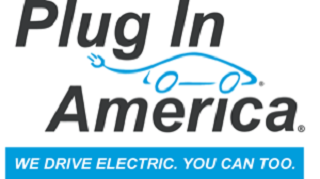2GreenEnergy Happily Welcomes a New Volunteer in the EV Space

Hi, and welcome aboard! (I don’t usually write with exclamation points, so you can correctly infer that I’m thrilled to have you here.)
Here are a few ideas regarding our discussion:
• What’s the trajectory for getting EVs and EVSE (EV supply equipment) built in the U.S.? Outside of the cost of labor, are there other issues militating against “made in the USA?”
• You may want to profile some of the large players in terms of batteries, charging stations, and so forth. Aerovironment, e.g., has a surging business in this space, and they are very willing to talk about it. If you want, I’ll introduce you to some of my contacts there.
• Certain public entities, e.g., the City of Santa Monica, have made huge commitments to alt-fuel vehicles (of which EVs are only one kind), and they just adore talking about that. Again, I can introduce you to some people there.
• What about inductive charging? Obviously, this is ideal for buses that make regular stops, e.g., those serving airport hotels. I visited a company in the space in Philadelphia, but that was years ago. How is this progressing by now? Who are the leading vendors? What has been their strategy to date?
• What about the suppliers of solar PV canopies for EV charging that we see at so many colleges and universities? How are they doing?
• Speaking of colleges, here’s an idea: offer a car to students as an optional part of their tuition (like a meal plan). It could include features to make sure the driver isn’t drunk, that the car isn’t operable from midnight to 6 AM, etc. Is anyone exploring that?
• Though there have been numerous fatalities (bankruptcies) in the EV space, there are still a few would-be OEM start-ups still hard at work. How are they doing? What would help their stars to rise?
• What’s new in the NEV (neighborhood EV) space? This never really appealed to me, but I would be happy to be wrong.
• Who’s making the most progress selling to fleets? Obviously, this is “low-hanging fruit” for EV OEMs, as the volumes are high, and the obligation to provide service is relatively inexpensive on a per-vehicle basis. BYD has been after this market for some time, but they were extremely tight-lipped about their plans. What’s the current status of all this?
• What’s the likely future of incentives at the federal level for EVs? What about the major states?
• What are the demographics of EV owners currently? Stereotypically, we think of rich liberals, and especially Hollywood moguls. I’m sure there is a grain of truth there, but obviously, there is a far larger market. Can you describe it? How, if at all, is this changing?
• What is the relationship between the increase in EV ownership and the overall eco-consciousness of our society?
• Tesla’s coast-to-coast fast charging stations sound like a breakthrough, insofar as they are a step in the direction of ending range anxiety. How important is all this? Tesla says it’s willing to let other EV owners use the stations as well. How would that work?
• What is happening with respect to battery chemistry? What does the future look like here? Eos Energy Storage in Edison NJ has been promising a breakthrough in zinc-air since I met them many years ago. What’s their current status?
• What about ultra-capacitors? Obviously, there is a lot of hype here, most of it centered around Eestor. What’s the truth behind all that?
• Advancements in batteries have implications far beyond the EV industry. How are developments in this field affecting the energy storage market generally? This, of course, is a dynamic market, as costs come down and batteries can be used to shave peak loads and provide a range of ancillary services.
• What’s the future of vehicle to grid (V2G)? We don’t hear as much about this as we did a few years ago. Why is this?
• How do EVs integrate into the whole “smart city” concept? I can arrange for you to speak with the publisher of Smart Grid News and chairperson of the Smart Cities Council.
• The fabulous website EVWorld.com has been run by my colleague Bill Moore for almost 20 years, if you can believe that. (It was one of the first indexed websites in the world.) I’m sure Bill can add a great deal of insight to what you’re doing.
• In addition to passenger vehicles, there are all manner of e-scooters, motorcycles, bikes, etc. The very best of these seem to be coming from The Netherlands, Germany, and Italy where they are far more popular than they are here. In Amsterdam, 37% of all new bicycles sold are electric, vs. 0.1% here. Having said that, I happen to know the owner of Seattle E-Bikes, and he’s doing fantastically well. If you want to speak with him, I’ll arrange the conversation.
• It appears that the autonomous vehicle is coming inexorably closer. How does that affect the future of EVs?
• Some (though not most) people understand that, as long as coal is the “go-to” energy source for incremental loads on the grid at night, that EVs make very little positive contribution environmentally; some people argue that it’s actually negative. So what’s the trajectory for getting that to change?
• I know it’s important to you that EVs be made in the U.S., and I highly respect that. Can the U.S. mimic the more progressive countries in the EV space, e.g., France with its numerous public-private partnerships?
• Organizations like FunRide in San Luis Obispo rent EVs, largely to tourists. I know the company’s president; please let me know if you’d like to speak with him.
• I’m happy to report that people today are questioning the validity of car ownership. Especially those who live in urban settings are becoming increasingly likely to use ZipCar and other car-sharing services. They also use Lyft, Uber, and other providers of rides. You may want to explore this entire phenomenon, and how it affects the future of EVs.
• The more things change, the more they stay the same. Below is one of the world’s most expensive EVs (a Bentley) being promoted by a pretty girl. Is there any chance this will change? I suppose not.
That’s it for now; I’ll add to this over time.
Thanks VERY MUCH for your interest in what we’re doing here and your generosity in helping us expand it.

